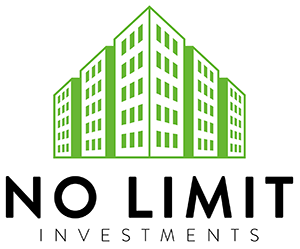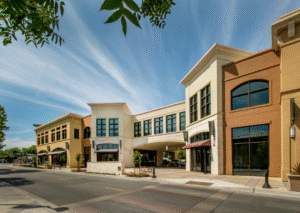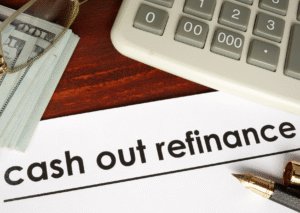What Are Commercial Real Estate Loans and How Do They Work?
Commercial real estate loans are specialized financing products used to purchase, renovate, or refinance income-producing properties. Unlike residential mortgages, which are backed by the borrower’s personal income, commercial loans rely heavily on the property’s potential to generate revenue and the borrower’s business financials.
These loans typically apply to properties such as:
- Office buildings
- Multi-family complexes (five units or more)
- Retail shopping centers
- Warehouses
- Hotels and motels
Most commercial real estate loans are offered by banks, credit unions, private lenders, or government-backed institutions such as the U.S. Small Business Administration (SBA). They come with terms ranging from 5 to 25 years and may include features such as balloon payments, amortization schedules, and higher interest rates than residential mortgages (Consumer Financial Protection Bureau).
What Types of Commercial Real Estate Loans Are Available?
Understanding loan options is key to choosing the right financing. Some of the most common types include:
- Traditional Commercial Mortgages – Long-term loans with fixed or variable rates, often used for stabilized properties.
- SBA 7(a) and 504 Loans – Government-backed loans ideal for small businesses purchasing or improving commercial property (SBA.gov).
- Bridge Loans – Short-term loans for quick purchases or renovations, typically with higher interest rates.
- Hard Money Loans – Asset-based lending focused on property value, not borrower credit.
- DSCR Loans (Debt Service Coverage Ratio Loans) – Based on a property’s cash flow rather than personal income.
- Construction Loans – Used to finance ground-up construction with interest-only payments during the build.
- Fix & Flip Loans – Short-term funding designed for investors buying, renovating, and reselling properties.
No Limit Investments (https://nolimitinvestments.net/) offers tailored loan solutions in many of these categories, including DSCR loans, fix & flip financing, and new construction loans.
Who Qualifies for a Commercial Real Estate Loan?
Lenders assess multiple criteria when evaluating applicants:
- Business Financials – Income statements, tax returns, and debt-to-income ratios
- Property Cash Flow – Demonstrated or projected rental income
- Credit Score – Usually a minimum of 660 for most traditional lenders
- Down Payment – Typically 20% to 30%
- DSCR Ratio – Must meet a minimum ratio (commonly 1.25) indicating the property earns enough to cover debt payments
At No Limit Investments, investors may qualify for a range of programs including asset-based and alternative documentation loans—expanding access even for those who may not meet traditional bank criteria.
What Documents Do Lenders Require During the Application Process?
Lenders need a comprehensive understanding of the borrower and the property. Required documents often include:
- Personal and business tax returns (past 2 years)
- Business bank statements
- Business plan (especially for new investors)
- Rent roll and lease agreements (for income-producing properties)
- Property appraisal or valuation
- Environmental assessments (if applicable)
- Purchase and sale agreement
Providing complete and accurate documentation increases approval chances and speeds up processing.
How Can Investors Improve Their Chances of Approval?
To increase the likelihood of getting approved for a commercial real estate loan, investors should:
- Build a strong business credit profile
- Maintain accurate financial records
- Choose properties with strong income potential
- Have a clear exit or income plan
- Work with experienced professionals such as commercial mortgage brokers like those at No Limit Investments
Additionally, participating in a business credit builder program—available at No Limit Investments—can strengthen your financial profile over time.
What Risks and Costs Should Borrowers Be Aware Of?
While commercial loans can be highly profitable, they also come with risks:
- Higher interest rates – Especially for bridge and hard money loans
- Balloon payments – A large lump sum may be due at loan maturity
- Prepayment penalties – Some loans penalize early payoff
- Vacancy risk – Inconsistent rental income may affect loan performance
- Environmental and legal liabilities – Depending on property use
Understanding these costs—and building financial buffers—is crucial. Using the consulting services offered at No Limit Investments can help investors prepare properly.
Why Should Investors Consider Alternative Financing Options?
Traditional lenders may deny funding based on rigid criteria. Alternative financing options from private lenders or brokers open doors for more investors. These options often offer:
- Faster approval processes
- Less stringent income verification
- Customized terms
No Limit Investments offers multiple alternative options including:
- Asset-based lending
- Stated-income mortgage loans
- Short-term rental loans
- Cash-out refinancing
These allow investors to act quickly on market opportunities without jumping through the usual banking hoops.
Where Can Investors Find Trusted Guidance for Commercial Real Estate Loans?
Navigating commercial lending can be overwhelming. Partnering with a reputable broker makes all the difference. No Limit Investments provides:
- Investor strategy sessions
- Loan consulting and matching
- Business credit coaching
- Real estate loan underwriting support
- Debt management and credit counseling
Their goal is to support investors through every stage—from first purchase to portfolio expansion.
What’s the Next Step for Investors Ready to Apply?
If you’re serious about investing in commercial property, your next step is to connect with a financing partner who understands your goals. No Limit Investments offers:
- Customized loan packages for fix & flip, buy & hold, and BRRRR strategies
- DSCR and non-owner-occupied mortgage loans
- Business credit lines and consulting support
- Flexible loan terms and fast approval processes
Visit No Limit Investments today to schedule your free consultation and explore funding options tailored to your investment goals.
Final Thoughts
Commercial real estate loans can be powerful tools for building wealth, but they require strategic planning, careful underwriting, and the right partnerships. By understanding your loan options, documenting your financials, and working with an expert like No Limit Investments, you can secure funding that aligns with your property investment strategy and long-term success.
Works Cited
Consumer Financial Protection Bureau. “What is a commercial real estate loan?” ConsumerFinance.gov, www.consumerfinance.gov. Accessed July 22, 2025.
U.S. Small Business Administration. “SBA 504 Loan Program.” SBA.gov, www.sba.gov/funding-programs/loans/504-loan-program. Accessed July 22, 2025.
U.S. Small Business Administration. “SBA 7(a) Loans.” SBA.gov, www.sba.gov/funding-programs/loans/7a-loans. Accessed July 22, 2025.
No Limit Investments. “Our Services.” nolimitinvestments.net, https://nolimitinvestments.net/services/. Accessed July 22, 2025.
Frequently Asked Questions:
- What are the most common types of commercial real estate loans?
The most common types include traditional commercial mortgages, SBA 7(a) and 504 loans, bridge loans, hard money loans, DSCR loans, construction loans, and fix & flip loans. Each loan type serves different investment purposes, from purchasing stabilized properties to funding short-term renovation projects. - What documents are typically required when applying for a commercial real estate loan?
Lenders usually request personal and business tax returns, business bank statements, a business plan, rent rolls or lease agreements, a property appraisal, and possibly environmental assessments, depending on the property type. - How can I improve my chances of getting approved for a commercial real estate loan?
Improve your business credit, maintain solid financial records, choose income-generating properties, have a clear investment plan, and work with a knowledgeable broker such as No Limit Investments to structure your application for success. - What risks should I be aware of with commercial real estate loans?
Common risks include higher interest rates, balloon payments, prepayment penalties, vacancy risks, and potential environmental liabilities. Proper planning and professional guidance can help mitigate these risks. - Where can I find alternative loan options if I don’t qualify through traditional banks?
You can explore asset-based lending, stated-income loans, short-term rental loans, and cash-out refinancing through private lenders. No Limit Investments specializes in these alternative financing solutions, helping investors secure funding even without traditional documentation.







